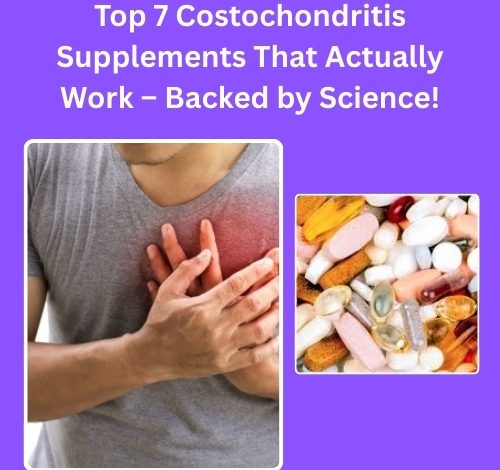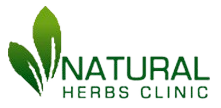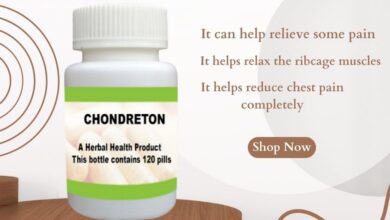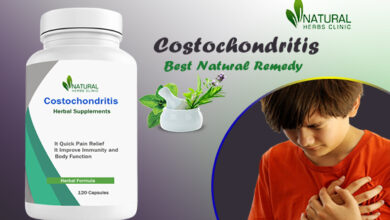Top 7 Costochondritis Supplements That Actually Work – Backed by Science!

Costochondritis is a painful condition characterized by inflammation of the cartilage where your ribs connect to the breastbone. It can cause discomfort in the chest, making everyday activities like breathing or lifting objects challenging. While traditional Herbal Supplement for Costochondritis often involve pain management and anti-inflammatory medications, many people are turning to costochondritis supplements as an alternative or complementary approach.
What is Costochondritis?
Costochondritis is an inflammation of the cartilage that connects your ribs to your breastbone (sternum). This area, known as the costosternal joint, can become irritated or inflamed, leading to sharp chest pain that often mimics heart-related issues.
Key Symptoms of Costochondritis:
- Sharp, aching, or pressure-like pain in the front of the chest
- Pain that worsens with movement, deep breathing, or coughing
- Tenderness when pressing on the chest or ribs
- Pain that usually affects one side but can also occur on both sides
Common Causes:
While the exact cause of costochondritis isn’t always clear, some known triggers include:
- Physical strain (heavy lifting, intense exercise)
- Injury or trauma to the chest
- Repetitive upper body movements
- Respiratory infections (especially those causing coughing)
- Inflammation from arthritis or autoimmune conditions
What Are Costochondritis Supplements?
Costochondritis supplements are natural or nutritional products designed to help reduce the inflammation, pain, and discomfort associated with costochondritis—a condition that causes inflammation of the cartilage connecting the ribs to the breastbone (sternum). These supplements support the body’s healing process and can be used alone or alongside conventional treatments.
They are often chosen by people looking for a more natural approach to managing chest pain, stiffness, and inflammation, especially those seeking a herbal treatment for costochondritis.
Benefits of Costochondritis Supplements
- reduce inflammation in the chest wall and rib joints
- ease pain and discomfort
- support joint and cartilage health
- enhance immune and anti-inflammatory responses
- provide nutritional support to the musculoskeletal system
Common Ingredients Found in Costochondritis Supplements
- Turmeric (Curcumin) – A powerful anti-inflammatory herb that helps reduce swelling and pain.
- Omega-3 Fatty Acids – Found in fish oil, they lower systemic inflammation.
- Ginger – Used for its natural pain-relieving and soothing effects.
- Boswellia Serrata – A traditional herbal extract that helps reduce joint inflammation.
- Vitamin D – Supports bone and cartilage health; low levels are often linked to musculoskeletal pain.
- Magnesium – Relieves muscle tension and supports nerve function.
- Devil’s Claw – A plant-based remedy known for relieving joint and chest wall pain.
Top 7 Costochondritis Supplements
If you’re dealing with the discomfort of costochondritis, you know how frustrating the chest pain and inflammation can be. While medications can help, many people are turning to costochondritis supplements as a natural way to manage symptoms and promote healing. Here are the top 7 supplements that may help relieve inflammation, reduce pain, and support overall joint and cartilage health.
1. Turmeric (Curcumin)
Turmeric, known for its active compound curcumin, has been a staple in traditional medicine for centuries due to its powerful anti-inflammatory properties. Research has shown that curcumin can help reduce inflammation in various parts of the body, including the cartilage. For individuals with costochondritis, taking turmeric supplements can help reduce pain and swelling in the affected areas.
Why It Works: A study published in the Journal of Alternative and Complementary Medicine showed that curcumin significantly decreased inflammation and pain in people with inflammatory conditions.
How to Use It: Turmeric supplements with standardized curcumin (around 95%) are the most effective for managing inflammation. It’s best absorbed when taken with black pepper (piperine).
2. Omega-3 Fatty Acids
Omega-3 fatty acids, commonly found in fish oil, are renowned for their anti-inflammatory properties. These healthy fats help to reduce systemic inflammation and can be particularly beneficial for conditions like costochondritis, which involve inflammation in the chest area.
Why It Works: Studies have shown that omega-3s can reduce the production of inflammatory molecules such as prostaglandins. One study published in The Journal of Rheumatology found that omega-3 fatty acids were effective in managing rheumatoid arthritis and other inflammatory conditions, which makes them a promising option for costochondritis.
How to Use It: Aim for a daily dosage of 1,000-3,000 mg of omega-3 fatty acids, found in high-quality fish oil supplements.
3. Boswellia Serrata
Boswellia serrata, commonly known as Indian frankincense, is a potent herb used in Ayurvedic medicine. It has been shown to have significant anti-inflammatory effects and can help reduce the pain and swelling associated with costochondritis.
Why It Works: Boswellia has been studied for its ability to block enzymes that trigger inflammation. Research published in the Journal of Phytomedicine found that Boswellia was effective in reducing inflammation in conditions such as osteoarthritis and rheumatoid arthritis, and may offer similar benefits for costochondritis.
How to Use It: Boswellia is commonly available in capsule or extract form. A typical dose is 300-500 mg, taken two to three times daily.
4. Ginger
Ginger is another powerful herb known for its anti-inflammatory and analgesic properties. It’s often used as an Herbal Treatment For Costochondritis to help manage both pain and inflammation.
Why It Works: A study in Arthritis & Rheumatism highlighted ginger’s ability to block pro-inflammatory enzymes, which help reduce inflammation and alleviate pain. Additionally, ginger’s antioxidant properties support overall health and well-being.
How to Use It: Ginger supplements typically come in capsules or tablets, and a common dose is 500-1,000 mg per day. Ginger tea or fresh ginger root can also provide relief.
- Vitamin D
Vitamin D plays a crucial role in immune function and bone health. In people with costochondritis, adequate vitamin D levels may help reduce inflammation and improve cartilage health, as it regulates the immune system and inflammation pathways.
Why It Works: Research has shown that vitamin D deficiency is linked to increased inflammatory markers, and supplementation can help reduce these markers. A study in The Clinical Journal of Pain found that vitamin D supplementation reduced pain in people with musculoskeletal pain, including costochondritis.
How to Use It: For those with low vitamin D levels, supplementation with 1,000-2,000 IU per day is commonly recommended. Blood tests can help determine if you need more.
6. Magnesium
Magnesium is a mineral that helps relax muscles and reduce pain and spasms. It also supports proper nerve function, which can help alleviate the discomfort associated with costochondritis, especially if the pain radiates or is coupled with muscle tension.
Why It Works: Magnesium has been shown to have anti-inflammatory effects. A study published in the Journal of Clinical Medicine found that magnesium supplementation could significantly reduce pain and inflammation in various musculoskeletal conditions.
How to Use It: Magnesium supplements are available in several forms, including magnesium citrate and magnesium glycinate. A dose of 300-400 mg daily is generally recommended for reducing inflammation and improving muscle function.
7. Devil’s Claw
Devil’s Claw (Harpagophytum procumbens) is an herb native to southern Africa, commonly used to treat inflammatory conditions and joint pain. It has shown promise as a natural remedy for costochondritis, particularly in reducing inflammation and pain.
Why It Works: Studies, including one published in Phytotherapy Research, have shown that Devil’s Claw helps reduce inflammation and alleviate pain. Its active compounds, harpagoside and others, have been found to act similarly to nonsteroidal anti-inflammatory drugs (NSAIDs), without the side effects.
How to Use It: Devil’s Claw supplements are usually available in tablet or capsule form. A typical dose is 600-1,200 mg per day, taken in divided doses.
Final Thoughts
When it comes to managing costochondritis, supplementation can be an effective part of a holistic treatment plan. Costochondritis supplements like turmeric, omega-3 fatty acids, and boswellia have proven anti-inflammatory effects, while herbal treatment for costochondritis options like ginger and Devil’s Claw offer natural relief. Always consult your healthcare provider before starting any new supplement, particularly if you have any underlying health conditions or are taking prescription medications. With the right supplements and proper care, managing costochondritis can become more manageable, allowing you to reclaim a better quality of life.




